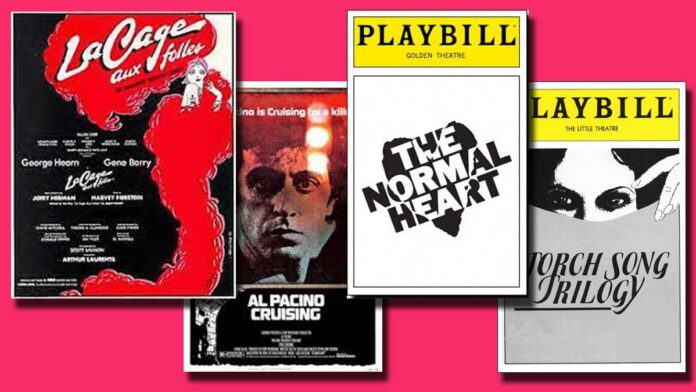Our current challenges make it hard to remember how quickly the LGBTQ cause advanced. It is equally hard to imagine our landmark victories being reversed by a right-wing Supreme Court. An example of how fleeting our familiar world can be is seen in the 1966 musical Cabaret, based on Christopher Isherwood’s 1939 novel “Goodbye to Berlin,” which portrays Berlin nightlife in the late Weimar period before the Nazis took over.
When Jerry Herman’s adaptation of “La Cage aux Folles” opened on Broadway in 1983, the AIDS epidemic was raging — it hit the theatre community particularly hard — and effective treatments were still years away. I was in New York City for a gay choral festival at summer’s end that year, and friends and I went to a matinee of the show. At the heart of that musical comedy was an affirmation of gay families and the right to be different, at a time when virtually no one was talking about marriage equality.
Some people have suggested that the gay and lesbian choral movement emerged in response to AIDS. It actually began before that, though choruses created a lot of music in response to the epidemic. This was deeply personal: many of us have lived twice as long as some of our friends.
Gay portrayals in the arts improved in the Eighties compared to earlier decades, but were by no means uniformly uplifting. A case in point is the 1980 film “Cruising,” starring Al Pacino, summarized in IMDB, “A police detective goes undercover in the underground S&M gay subculture of New York City to catch a serial killer who is preying on gay men.” Its lurid, exploitative distortion of gay nightlife provoked loud protests.
There have always been bold queer voices. Harvey Fierstein’s “Torch Song Trilogy” opened Off-Broadway in 1981 and moved to Broadway the following year. Larry Kramer’s “The Normal Heart” ran Off-Broadway in 1985. Now we have everything from Paul Verhoeven’s “Benedetta” to Don Scardino’s “The B**** Who Stole Christmas.” Singers Lil Nas X and Brandi Carlile each received five Grammy nominations.
As Frederick Douglass said, power concedes nothing without a demand. President Reagan did not give a speech about AIDS until 1987, when he did so partly at the urging of Elizabeth Taylor. Initially, his staff treated what some called the “gay plague” as a subject for mirth. Surgeon General C. Everett Koop was an admirable exception.
A common assertion I encountered reveals the worst in what passes for public discourse. After someone quoted director Ron Howard calling Donald Trump “a self-serving, dishonest, morally bankrupt egomaniac who doesn’t care about anything or anyone but his fame and bank account and is hustling the U.S.,” someone else replied, “Ironic from a Hollywood type, a world filled with worse types.” The person offering this wisdom did not share his own credentials.
Any citizen, even a moviemaker, has as much right to speak as you or I. The treatment of entertainers (a category that includes Trump, incidentally) as belonging to an inferior class has a long history. That does not make it rational. The evidence of the past several years, including over thirty thousand documented lies and an attempted coup, shows that Mr. Howard speaks the truth.
Truth can be hard to discern amid the noise, which makes it all the more important to pause on these long nights and reflect upon the values that bind us as a nation. One of them is that we should not hold others to a standard we don’t apply to ourselves.
By holding up a mirror to society, the arts help us see ourselves and one another in new ways. That could give us pause as we hurtle toward a bloody civil conflict.
America’s crisis reflects an unpleasant truth about us as humans: we are intolerant of difference, and deaf to divergent perspectives. We tend to toss a predigested dismissal at any view that veers more than an inch from that of our chosen herd, and misinformation flourishes, inflamed by social media.
The arts can sneak past our defenses and put us briefly in someone else’s shoes. We need that experience more than policy fixes.
“Peace on Earth,” a phrase often heard in this season, is less an observation than an appeal to our better selves. Amid growing rancor, we do well to heed that small voice. If we do, the politics just might follow. What it takes, I surprise my inner skeptic by saying, is a leap of faith.
Richard J. Rosendall is a writer and activist at rrosendall@me.com.

